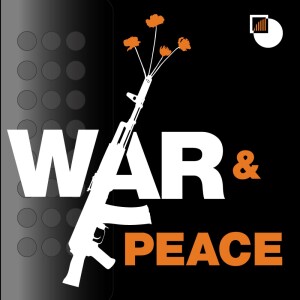
A wave of democratic experimentation is defying conventional wisdom about electoral politics and good governance. Randomly selected citizens’ assemblies are becoming a popular tool for tackling complex policy issues. Ireland, France and Belgium, among others, have turned to citizens’ assemblies in recent years, often with considerable success. Proponents of this kind of random selection, also known as sortition, argue that it could usher in a new era of inclusive governance, an attractive prospect in an age of mounting inequity and public disillusionment with politicians. Still, doubts remain. For one, citizens’ assemblies have almost exclusively been trialled in wealthy Western countries.
This week on War & Peace, Olya Oliker and Hugh Pope are joined by Brett Hennig, president of the Sortition Foundation and author of The End of Politicians: Time for a Real Democracy. They discuss the basic precepts of sortition, the mechanics of setting up a representative citizens’ assembly, and their potential relationship with established political institutions. They talk about whether random selection could rebuild faith in democracy and how to ensure consensual and informed deliberation. They ask whether citizens’ assemblies are singularly suited for Western democracies and what role they could play in healing societal divisions in conflict-stricken states.
To find out more about Brett’s work make sure to check out his book The End of Politicians: Time for a Real Democracy and the Sortition Foundation’s website.
Hosted on Acast. See acast.com/privacy for more information.
More Episodes
 2022-04-12
2022-04-12
 2022-03-30
2022-03-30
 2022-03-08
2022-03-08
 2022-03-01
2022-03-01
 2022-02-15
2022-02-15
 2022-02-02
2022-02-02
 2022-01-18
2022-01-18
 2021-12-07
2021-12-07
 2021-12-03
2021-12-03
 2021-11-09
2021-11-09
 2021-10-27
2021-10-27
 2021-09-14
2021-09-14
Create your
podcast in
minutes
- Full-featured podcast site
- Unlimited storage and bandwidth
- Comprehensive podcast stats
- Distribute to Apple Podcasts, Spotify, and more
- Make money with your podcast
It is Free
- Privacy Policy
- Cookie Policy
- Terms of Use
- Consent Preferences
- Copyright © 2015-2024 Podbean.com





